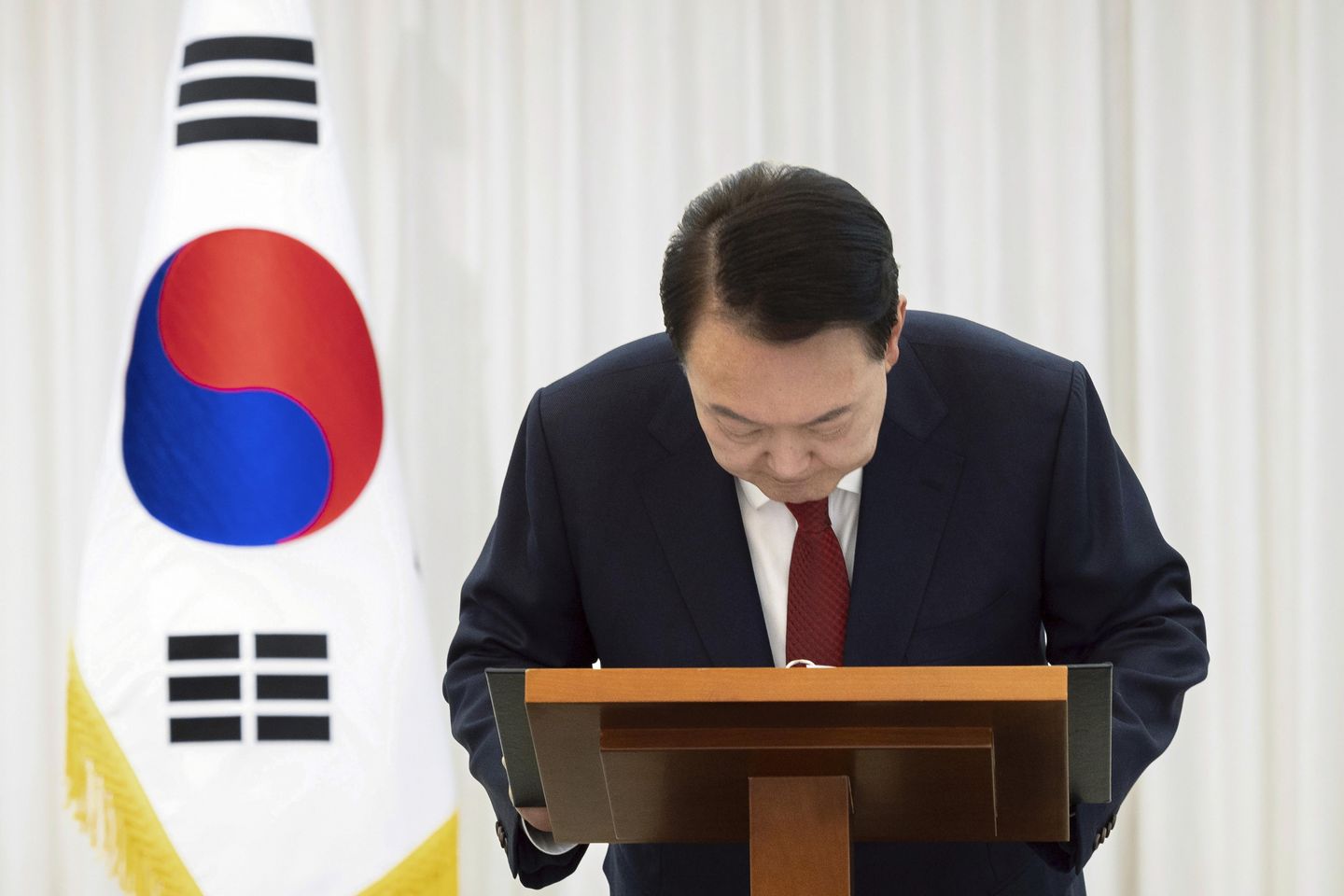South Korea’s Constitutional Court convened its first meeting to discuss the impeachment of President Yoon Suk Yeol, marking a significant moment in the country’s political history. The decision to impeach a sitting president is a rare occurrence in South Korea, and the outcome of this process will have far-reaching implications for the nation’s future.
President Yoon Suk Yeol’s impeachment was initiated by the National Assembly, which passed a motion accusing him of violating the constitution and committing acts that are deemed unacceptable for a head of state. The allegations against President Yoon include abuse of power, corruption, and negligence of duty, among others.
The impeachment process began when the National Assembly voted to impeach President Yoon, following weeks of public outcry and protests demanding his removal from office. The decision to impeach a sitting president is a serious and solemn one, requiring careful consideration and adherence to due process.
The Constitutional Court is now tasked with reviewing the evidence presented by both the prosecution and the defense, as well as hearing testimonies from witnesses and experts. The court will have to determine whether the allegations against President Yoon are valid and whether they warrant his removal from office.
The impeachment process is a crucial test of South Korea’s democratic institutions and the rule of law. It demonstrates the country’s commitment to upholding the principles of justice and accountability, even at the highest levels of government. The outcome of this process will not only determine the fate of President Yoon but also send a powerful message about the strength and integrity of South Korea’s democracy.
The Constitutional Court’s decision will be closely watched by the public, political observers, and international partners. The court’s verdict will have a significant impact on the country’s political stability, economic prospects, and international standing. The outcome of this process will shape the future direction of South Korea and set a precedent for how the country deals with allegations of misconduct by its leaders.
The impeachment of President Yoon comes at a critical juncture for South Korea, as the country grapples with a range of challenges, including the ongoing COVID-19 pandemic, economic uncertainty, and regional security concerns. The political turmoil surrounding President Yoon’s impeachment has added to the uncertainty and raised questions about the country’s ability to effectively govern itself in times of crisis.
The impeachment process has also sparked debate and division within South Korean society, with supporters and opponents of President Yoon taking to the streets to voice their opinions. The country’s media outlets have been closely following the developments, providing extensive coverage and analysis of the impeachment proceedings.
The Constitutional Court’s decision will ultimately determine whether President Yoon remains in office or is removed from power. If the court upholds the impeachment, President Yoon will be required to step down, and a new election will be held to select his successor. If the court rejects the impeachment, President Yoon will be reinstated, and the political landscape in South Korea will likely remain unchanged.
The impeachment of a president is a rare event in South Korea’s history, with only one other president, Park Geun-hye, having been impeached before. Park’s impeachment in 2017 was a watershed moment for the country, leading to her removal from office and subsequent imprisonment on corruption charges. The fallout from Park’s impeachment continues to reverberate in South Korean politics to this day.
The impeachment process is a critical test of South Korea’s democratic institutions and the rule of law. It is an opportunity for the country to demonstrate its commitment to transparency, accountability, and good governance. The outcome of this process will set a precedent for how future leaders are held accountable for their actions and how the country deals with allegations of misconduct at the highest levels of government.
The impeachment proceedings are expected to last several weeks, with the Constitutional Court hearing arguments from both sides and carefully deliberating on the evidence presented. The court’s decision will be based on a thorough examination of the facts and legal principles, ensuring that justice is served and the rule of law is upheld.
The outcome of the impeachment process will have significant implications for South Korea’s political landscape, shaping the country’s future trajectory and influencing its relationships with other nations. The decision will be closely monitored by the international community, which views South Korea as a key ally and partner in promoting democracy, human rights, and regional stability.
The impeachment of President Yoon Suk Yeol represents a critical moment in South Korea’s history, testing the strength of its democratic institutions and the resilience of its political system. The outcome of this process will determine the country’s future direction and set a precedent for how it deals with allegations of misconduct by its leaders. It is a moment of reckoning for South Korea, as it confronts the challenges of the present and lays the foundation for a more just and accountable future.









